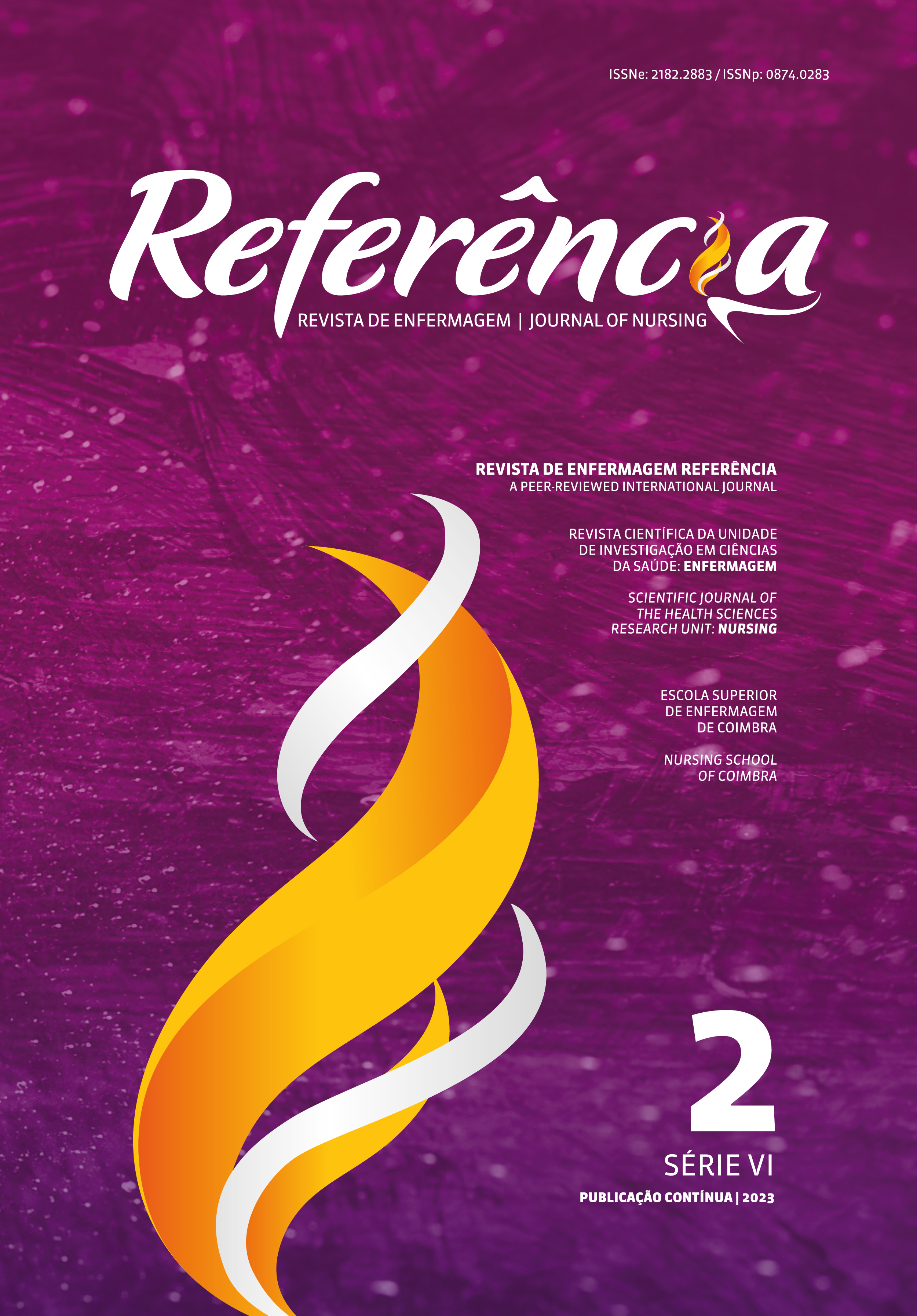Proceso de atención entre el cuidador informal y el paciente con necesidades paliativas en el domicilio: metasíntesis
DOI:
https://doi.org/10.12707/RVI22074Palabras clave:
cuidados paliativos, enfermo, cuidadores, comunidade, revisión sistemáticaResumen
Introducción: El cuidador informal y el paciente con necesidades paliativas son fundamentales para el éxito de los cuidados a domicilio, pero se sabe poco sobre la atención que se presta entre ambos.
Objetivo: Identificar los factores que influyen en la atención entre el cuidador informal y el paciente con necesidades paliativas en el domicilio.
Metodología: Metasíntesis siguiendo la metodología Joanna Briggs Institute. Se incluyeron estudios cualitativos con la perspectiva de cuidadores informales y/o pacientes con necesidades paliativas en el domicilio. Búsqueda en las bases MEDLINE, CINHAL, Embase y Scopus (2009-2021).
Resultados: Se incluyeron 30 estudios con 605 participantes. Surgieron ocho temas centrales: factores que facilitan / dificultan los cuidados informales; estrategias utilizadas; influencia del tiempo y de la progresión de la enfermedad en los cuidados; motivaciones para cuidar en casa; aprendizaje continuo y funciones del cuidador.
Conclusión: Los cuidados informales son un proceso dinámico en el que se incluyen factores que facilitan / dificultan, estrategias y progresión de la enfermedad. Los resultados permiten comprender la experiencia de cuidar y estructurar unos cuidados centrados en la persona, flexibles y adaptados al contexto.
Descargas
Citas
Aromataris, E., & Munn, Z. (Eds.). (2020b). Joanna Briggs Institute reviewer’s manual (4th ed.). The Joanna Briggs Institute.
Bruinsma, J., Peetoom, K., Bakker, C., Boots, L., Verhey, F., & Vugt, M. (2022). They simply do not understand: A focus group study exploring the lived experiences of family caregivers of people with frontotemporal dementia. Aging and Mental Health, 26(2), 277–285. https://doi.org/10.1080/13607863.2020.1857697
Connor, S. R. (2020). The global atlas of palliative care at the end of life (2nd ed.). Worldwide Palliative Care Alliance; World Health organization. http://www.thewhpca.org/resources/global-atlason-end-of-life-care
Critical Appraisal Skills Programme. (2018). Checklist: 10 questions to help you make sense of a qualitative research. http://cfkr.dk/images/file/CASP%20instrumentet.pdf
Figueiredo, D. (2007). Cuidados familiares ao idoso dependente. Climepsi.
Gardiner, C., Brereton, L., Frey, R., & Wilkinson-meyers, L. (2015). Approaches to capturing the financial cost of family care-giving within a palliative care context : A systematic review. Heal and Social Care in the Community, 24(5), 519-531. https://doi.org/10.1111/hsc.12253
Gomes, B., Calanzani, N., Gysels, M., Hall, S., & Higginson, I. J. (2013). Heterogeneity and changes in preferences for dying at home: A systematic review. BMC Palliative Care, 12(7), 1–13. http://www.biomedcentral.com/1472-684X/12/7
Gómez-Batiste, X., & Connor, S. (2017). Building integrated palliative care programs and services. Liberdúplex.
Hudson, P., & Payne, S. (2011). Family caregivers and palliative care: Current status and agenda for the future. Journal of Palliative Medicine, 14(7), 864–869. https://doi.org/10.1089/jpm.2010.0413
Lei no52/2012 da Assembleia da Republica. (2012). Diário da República: I série, nº 172. https://files.dre.pt/1s/2012/09/17200/0511905124.pdf
Martín, J. M., Olano-Lizarrga, M., Saracíbar-Razquin, M., Olano-Lizarraga, M., & Saracíbar-Razquin, M. (2016). The experience of family caregivers caring for a terminal patient at home: A research review. International Journal of Nursing Studies, 64, 1–12. https://doi.org/10.1016/j.ijnurstu.2016.09.010
Page, M. J., McKenzie, J. E., Bossuyt, P. M., Boutron, I., Hoffmann T. C., Mulrow, C. D., Shamseer, L., Tetzlaff, J. M., Akl, E. A., Brennan, S. E., Chou, R., Glanville, J., Grimshaw, J. M., Hróbjartsson, A., Lalu, M. M., Li, T., Loder, E. W., Mayo-Wilson, E., McDonald, S., … Moher, D. (2021). The PRISMA 2020 statement: An updated guideline for reporting systematic reviews. BMJ, 372(71), 1–9. https://doi.org/10.1136/bmj.n71
Robinson, C. A., Bottorff, J. L., McFee, E., Bissell, L. J., & Fyles, G. (2017). Caring at home until death: Enabled determination. Supportive Care in Cancer, 25(4), 1229–1236. https://doi.org/10.1007/s00520-016-3515-5
Sarmento, V. P., Gysels, M., Higginson, I. J., & Gomes, B. (2017). Home palliative care works: But how? A meta-ethnography of the experiences of patients and family caregivers. BMJ Supportive and Palliative Care, 7(4), 390-403. https://doi.org/10.1136/bmjspcare-2016-001141
Short, C. (2017). Experiences of informal caregivers in managing the care and the death in the rural palliative care home setting. https://www.heti.nsw.gov.au/__data/assets/pdf_file/0006/438801/Caroline-Short-Final-Report.pdf
Tong, A., Sainsbury, P., & Craig, J. (2007). Consolidated criteria for reporting qualitative research (COREQ): A 32-item checklist for interviews and focus groups. International Journal for Quality in Health Care, 19(6), 349–357. https://doi.org/10.1093/intqhc/mzm042
Wu, M., Huang, S., & Tsao, L.-I. (2020). The life experiences among primary family caregivers of home-based palliative care. American Journal of Hospice & Palliative Medicine, 37(10), 816–822. https://doi.org/10.1177/1049909120907601
Zarzycki, M., Morrison, V., Bei, E., & Seddon, D. (2022). Why do they care? A qualitative systematic review and meta-synthesis of personal and relational motivations for providing informal care. Health Psychology Review, 1–33. https://doi.org/10.1080/17437199.2022.2058581






















